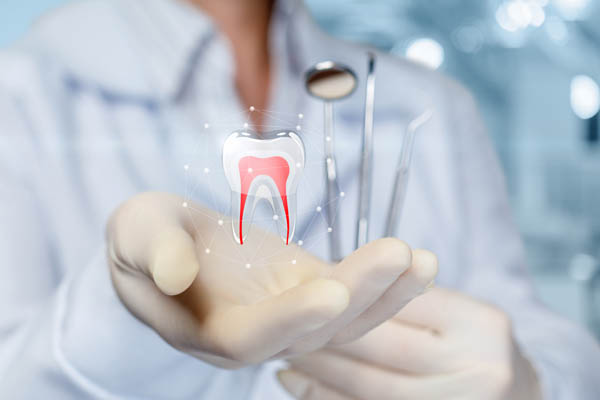How Long Does Root Canal Treatment Last?

Root canal treatment is used to save a tooth when its pulp chamber has been damaged, as the blood vessels, connective tissues, and nerves in the pulp chamber are exposed to harmful irritants like bacteria and the acids that they produce. Root canal treatment involves the dentist removing the soft tissues in the pulp to prevent infection and stop the pain caused by the damage. These soft tissues are only necessary when a tooth is still growing. Once it is fully developed, the tooth can get all the nutrients that it needs from the surrounding blood vessels.
The benefits of getting root canal therapy can last a lifetime, but some patients might need additional treatments in the future. Factors like the location of the tooth and the patient’s age often determine how long the benefits of a root canal last.
Determining how long root canal treatment lasts
According to studies reported by WebMD, over 90% of root canals are successful, meaning the patient does not need any additional treatments. About 86% of root canals last over 10 years. Let us take a look at a few of the factors that can impact the success rate of root canal treatments.
The timing
Root canal treatments that are performed when needed typically last longer than those performed after the issue has been allowed to fester. The longer that a person waits before getting root canal therapy for a tooth with a compromised pulp chamber, the higher the risk of complications. Wait long enough, and root canal therapy might no longer be an option. For example, dentists often recommend extractions over root canals when there is a significant risk of an infection spreading into the jaw.
The quality of the restoration
Dentists often recommend restorations like composite bonding or crowns for teeth that have been repaired with root canal therapy. The type of restoration used also affects how long the treatment lasts. Composite bonding is the more affordable way to rebuild a tooth after root canal therapy, but it does not offer as much protection as a crown. Teeth covered up with crowns after a root canal typically have fewer complications. How soon the restoration is placed on the tooth also affects the longevity of the treatment.
The tooth’s location
Root canals performed on teeth located at the front of the mouth are typically less complicated than treating teeth in the back of the mouth. These teeth are also subjected to fewer forces and bite pressures after the procedure because they are primarily used for cutting and biting.
Molars at the back of the mouth are the most challenging teeth to restore with root canal therapy because they have multiple root canals and deal with considerably greater forces after the treatment. Covering these teeth with crowns is a must.
Root canals are a long-term solution
Root canal therapy can be a long-term solution for infected or damaged teeth and can last the rest of your life. Call or stop by our North Hollywood clinic to set up an appointment with our dentist.
Request an appointment here: https://www.cdcdentalcenter.com or call CDC Dental Center at (818) 578-2325 for an appointment in our North Hollywood office.
Check out what others are saying about our dental services on Yelp: Root Canal Treatment in North Hollywood, CA.
Related Posts
Root canal therapy can restore your oral health. The treatment aims to remove the tooth’s infection and stop the pain. Anything can cause dental pain. It may signal your need for endodontic treatment. If you want to know when a dentist would recommend root canal therapy, here are the details.Pain may indicate an immediate need…
You may dread the thought of having a root canal, but it may be necessary. A filling or composite bonding might address minor or moderate cavities. However, if you are experiencing severe, consistent pain in your teeth, these treatments may not be enough to restore the affected tooth. Endodontic treatment is a method where your…
Root canal therapy is typically performed when a tooth's pulp chamber has been infected, irritated, or inflamed. The procedure involves cleaning out the contents of the pulp chamber, applying medication to the area to dry out any infection, and sealing the tooth with a special type of filling material called gutta-percha.Root canals have earned a…
The thought of getting a root canal is, for many people, one of the scariest dental procedures possible. This treatment can cause a person to feel nervous and anxious. The truth is that your dentist will have the knowledge and training to successfully perform this treatment without you being in much pain. It is helpful…
